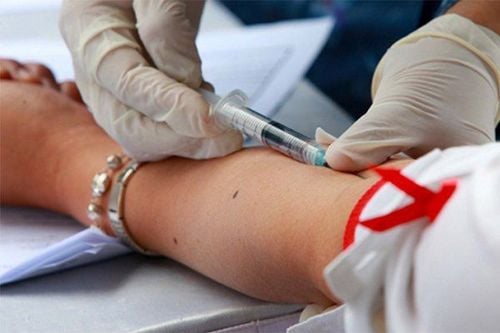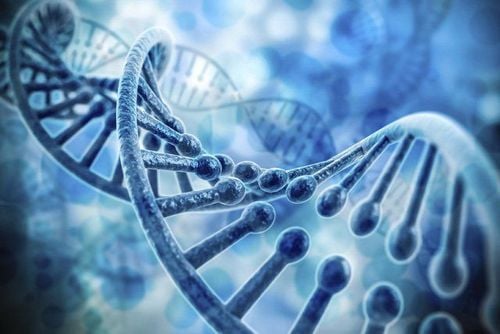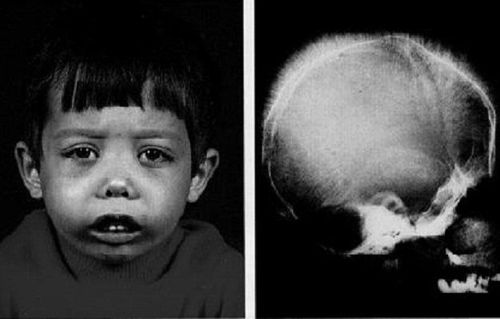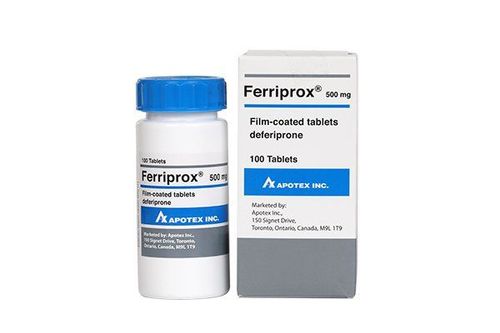This is an automatically translated article.
The article was professionally consulted by Specialist Doctor II Bui Thi Thu - Obstetrician and Gynecologist - Department of Obstetrics and Gynecology - Vinmec Hai Phong International General Hospital.Hemoglobin testing is a must when you want to diagnose blood diseases so that you can have a plan for prevention or timely treatment. So why and when should the test be performed, and in what cases is the test result considered abnormal?
1. Why do you need a hemoglobin test?
Hemoglobin is a complex protein containing Fe++ responsible for transporting oxygen and carbon dioxide from the lungs throughout the body. Hemoglobin is present in red blood cells and accounts for 33% of the weight of red blood cells, consisting of two components, heme and globin.Hemoglobin electrophoresis is a type of blood test performed to evaluate the presence or absence of abnormal types of hemoglobin in the blood and measure their concentrations. Another way of defining this is a test that evaluates the composition and percentage of hemoglobin (Hb) in the blood that is valuable in the diagnosis and screening of hemoglobinopathy.
In hemoglobin electrophoresis, normal and abnormal hemoglobin have different molecular structures, so they have different electrical charges and move at different speeds under the influence of an electric current. So abnormal and normal hemoglobin will be separated when an electric current is applied, so that the doctor can see if abnormal hemoglobin is present and measure their concentration.
The level of normal hemoglobin types is too low or too high or the presence of abnormal hemoglobin in the blood means that you have a hemoglobin-related disease. Often abnormal hemoglobin types are present but do not cause typical clinical symptoms, or cause only mild disease, which can sometimes cause life-threatening illness.

2. Some abnormal hemoglobin test results
Some of the following situations will result in an abnormal hemoglobin electrophoresis test result:
Have a rare form of hemoglobinopathy: this is a group of genetic disorders that cause the production or structure of red blood cells to be abnormal. . Hemoglobin H as shown by hemoglobin electrophoresis Have hemoglobin C syndrome: this is an inherited disorder that causes severe anemia. This condition is mainly treated with folic acid supplements to help the body produce normal red blood cells. Thalassemia syndrome: Your doctor's suggested treatment depends on the nature and severity of the disorder. Sickle cell anemia can be treated with a bone marrow transplant. If a bone marrow transplant is not possible, the doctor will give treatment to alleviate the symptoms of the disease. In general, the treatment for hemoglobinopathy depends on the cause of the disease based on the test results of the individual patient.

3. When to test hemoglobin?
Situations in which hemoglobin should be tested:
You have a history of anemia and your doctor suspects that it may be caused by hemoglobin abnormalities. At this time, hemoglobin electrophoresis will find out which hemoglobin disease you have. For people who already have hemoglobinopathy, this test will help monitor how well the treatment is working. People who are about to get married who have certain hemoglobin diseases need to have a hemoglobin electrophoresis test to determine what percentage of their children will inherit this disease in the future. Subjects indicated for hemoglobin test:
Family history of hemoglobinopathy; Hemolytic anemia of unknown etiology should be evaluated; Microcytic anemia has not been associated with lead poisoning, chronic disease, or iron deficiency.
Please dial HOTLINE for more information or register for an appointment HERE. Download MyVinmec app to make appointments faster and to manage your bookings easily.














